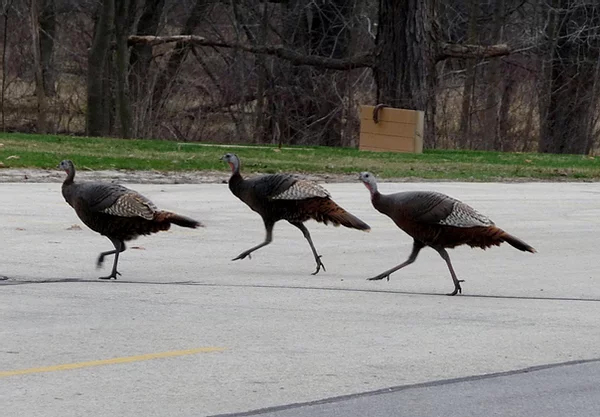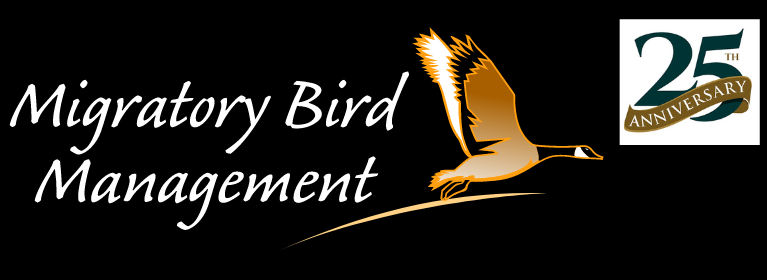APPEARANCE
Turkeys are the largest game fowl, and one of the largest and heaviest birds in general, in the United States. Males and females sport a naked head with iridescent and mottled brown plumage. Adult males have a red wattle and bright blue and red head. Females are dark brown, no wattle and a blue head.
BEHAVIOR
Turkeys roost in large flocks. Despite their size, they can fly and frequently roost in trees and on buildings. During the breeding season, males will tend and display for a small group of females by gobbling and spreading their tails while fighting off other males (and even their own reflections!). Females nest and rear the young on their own or with other females. Outside of the breeding season, males will form fraternities.
DIET
Turkeys eat a variety of food, mostly nuts and seeds and crops, but they will also eat insects, small amphibians and rodents, and even dig up plant bulbs.
HABITAT
Turkeys prefer wooded areas where trees will drop nuts and seeds, but they also utilize edge habitats in urban areas and around farm fields in rural areas. As populations grow, Turkeys are coming into contact with people more and more as they invade neighborhoods and even urban shopping areas.
NESTING
Female Turkeys nest on the ground in a shallow depression. They lay approximately one egg per day until they reach a full clutch of 4-17 eggs. They don’t incubate until all eggs are laid so that all poults (baby turkeys) hatch at the same time. Babies are precocious, which means they will leave the nest to follow mom shortly after hatching.
MIGRATION
Turkeys do not migrate. They live year-round in their range relying on tree nuts and farm fields to survive the winter.
ISSUES CAUSED BY TURKEYS
- Thefts from bird feeders
- Damage to landscaping and flowerbeds from foraging for bulbs and insects
- Damage to vehicles and windows from pecking at the shiny surfaces
- Aggression towards people and pets
- Collisions with vehicles
HOW TO MANAGE ISSUES WITH TURKEYS
- Use of window decals like Feather Friendly to remove reflective surface that can provoke fighting with their reflection
- Harassment of turkeys with canines or lasers
Sources: The Audubon Society, Cornell Lab of Ornithology bird guide, Humane Society of the United States, Internet Center for Wildlife Damage Management, Nest Watch

Female turkeys in a parking lot


